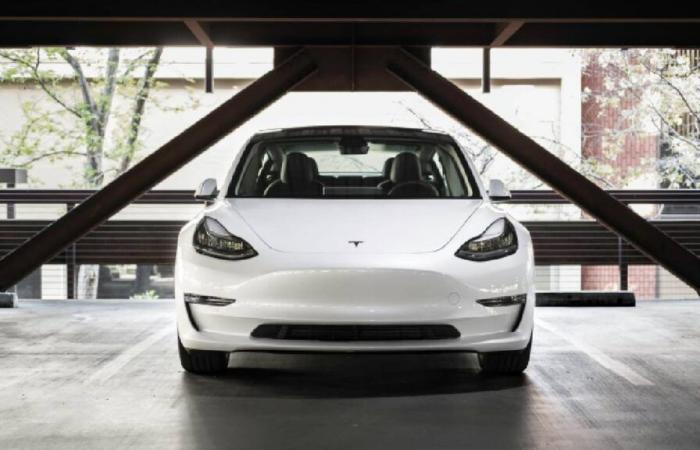News JVTech The Tesla Model 3 wins the trophy for the least reliable electric car for the second year in a row
Published on 11/27/2024 at 10:30 p.m.
Share :
The Tesla Model 3 is once again the bottom of the most reliable electric cars.
Tesla Model 3: a mixed reliability report
The Tesla Model 3, acclaimed for its futuristic approach and its good performance, has just received a new blow. Indeed, an in-depth study conducted by ADAC and TÜV, two leading German institutions in the automotive sector, revealed that the American electric sedan was the least reliable of all the cars tested. This result is based on the analysis of thousands of vehicles of different makes and models, over a period of several years.
Inspectors scrutinized numerous elements, ranging from the chassis structure to the electrical systems, including the brakes and suspensions. The results are clear: the Tesla Model 3 accumulates several failuresparticularly in terms of headlights, brakes and suspension. These problems seem to be recurring, regardless of the age of the vehicle.
Shortcomings inherent to electric vehicles?
According to Joachim Bühler, director of the TÜV association, the main reasons for this poor performance are to be found in maintenance and after-sales service. “Even the high mileage cannot hide the poor performance of the Model 3. In addition to brake and axle defects, the Tesla also has a particularly large number of lighting defects. This demonstrates deficiencies in service and maintenance”he explains.
Interestingly, electric cars based on existing thermal models performed better. The Volkswagen e-Golf and Mini Cooper SE, for example, have shown much higher reliability than the Tesla Model 3. This finding suggests that the experience of traditional manufacturers in producing electric vehicles could play a determining role in the long-term quality of these models.
Furthermore, experts also pointed out that electric cars are more likely to have brake and suspension problems. This is due to several factors, including the higher weight of these vehicles and the use of regenerative braking. The latter, which allows energy to be recovered during deceleration, uses the brakes differently compared to a traditional braking system.
Faced with these results, Joachim Bühler called for a review of reliability testing methods for electric vehicles. “Battery condition proof is an important factor in the development of the used electric car market”he emphasizes. So far, inspections are limited to a visual examination of the battery. However, it would be necessary to implement more in-depth tests to guarantee the safety and performance of these components in the long term.
Business






